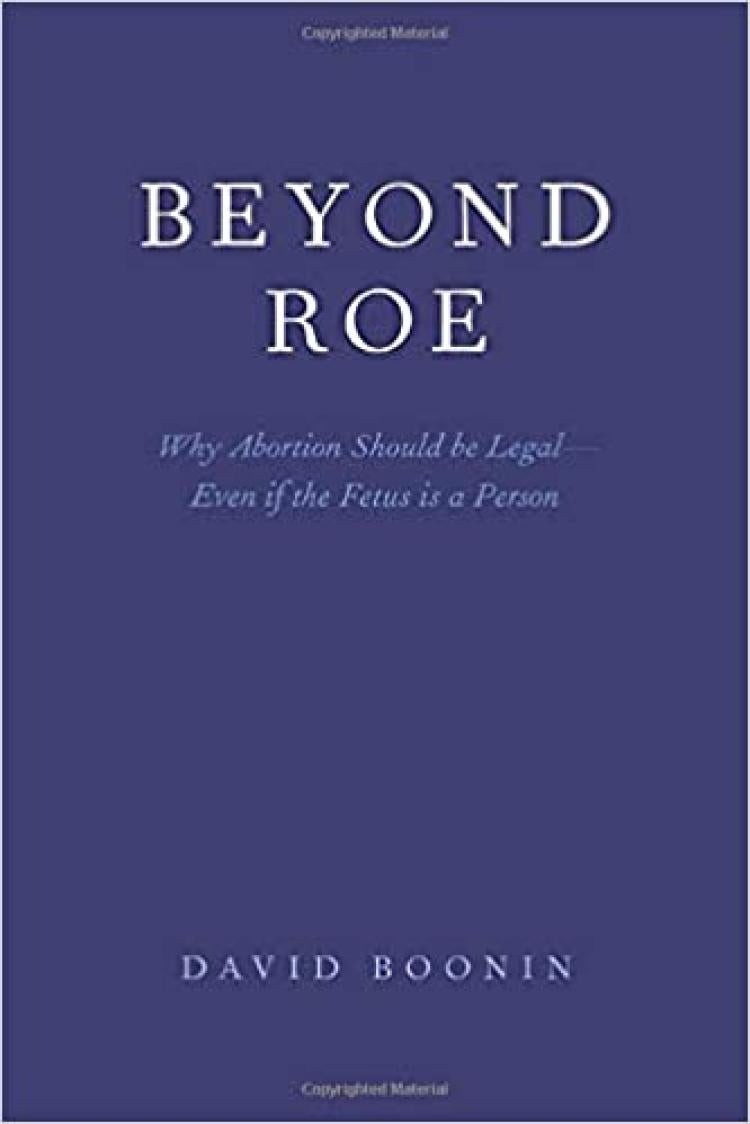Beyond Roe: Why Abortion Should be Legal--Even if the Fetus is a Person
An Imaginary Digital Media Object from the Onto-Tales of the Digital Afterlife

About the book: Most arguments for or against abortion focus on one question: is the fetus a person? In this provocative and important book, David Boonin defends the claim that even if the fetus is a person with the same right to life you and I have, abortion should still be legal, and most current restrictions on abortion should be abolished. Beyond Roe points to a key legal precedent: McFall v. Shimp. In 1978, an ailing Robert McFall sued his cousin, David Shimp, asking the court to order Shimp to provide McFall with the bone marrow he needed. The court ruled in Shimp's favor and McFall soon died. Boonin extracts a compelling lesson from the case of McFall v. Shimp--that having a right to life does not give a person the right to use another person's body even if they need to use that person's body to go on living-and he uses this principle to support his claim that abortion should be legal and far less restricted than it currently is, regardless of whether the fetus is a person.
By taking the analysis of the right to life that Judith Jarvis Thomson pioneered in a moral context and applying it in a legal context in this novel way, Boonin offers a fresh perspective that is grounded in assumptions that should be accepted by both sides of the abortion debate. Written in a lively, conversational style, and offering a case study of the value of reason in analyzing complex social issues, Beyond Roe will be of interest to students and scholars in a variety of fields, and to anyone interested in the debate over whether government should restrict or prohibit abortion.
About the author: David Boonin is Professor of Philosophy at the University of Colorado Boulder and Director of the Department's Center for Values and Social Policy. His books include A Defense of Abortion (2003), The Problem of Punishment (2008), Should Race Matter? (2011), and The Non-Identity Problem and the Ethics of Future People (OUP 2014).

